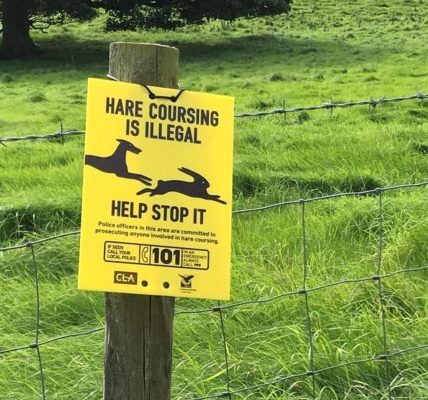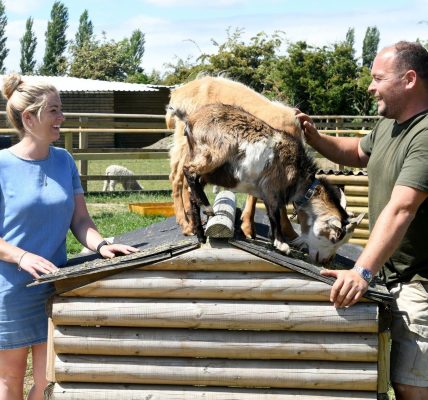How Peter Easterby landed Cheltenham festival double with Little Owl and Sea Pigeon
How Peter Easterby landed Cheltenham festival double with Little Owl and Sea Pigeon
PETER Easterby’s economy of words fails to do justice to one of jump racing’s greatest ever training feats 40 years ago when stablemates Little Owl and Sea Pigeon landed the Cheltenham Gold Cup and Champion Hurdle.
“It was alright, was that,” the indomitable and still irascible 91-year-old tells when reminded about the landmark. “I think I had a big bet. Never ever drank so much Champagne in my life.”
And with good reason after Easterby, a Ryedale farmer who took up racing, became the first trainer to pull off the Festival double – Cheltenham’s ultimate benchmark – since Fulke Walwyn did so in 1962 with Mandarin and Anzio.
After all, these were historic and heady times for US jumping as Easterby also became the first post-war trainer to saddle the first two in the Gold Cup with the mighty Night Nurse chasing home Little Owl.
It also saw Little Owl’s jockey Jim Wilson become the first amateur rider since Dickie Black on Fortina in 1947 to win steeplechasing’s blue riband race while Sea Pigeon’s win was Easterby’s fifth Champion Hurdle, a then record.
“Aye, good horses,” says Easterby who still shudders at the thought of what could have gone wrong in the Champion Hurdle when beloved ‘Pigeon’ was ridden with exaggerated restraint by John Francome to get the two-mile trip.
Classy enough to finish seventh in the 1973 Derby, he had a tendency to pull himself up once hitting the front – as Jonjo O’Neill discovered in the 1979 Champion Hurdle when the partnership’s old foe Monksfield prevailed on the run-in.
O’Neill and Sea Pigeon just about atoned when clinging onto York’s Ebor later that year before ending the horse’s Cheltenham hoodoo in 1980.
Yet, with O’Neill on the sidelines with a badly broken right leg, Easterby turned to the mercurial Francome whose relaxed style of riding was ideal for delaying the veteran 11-year-old’s winning run.
“When we got Pigeon, he hadn’t got any brakes but we got him brainwashed,” explains Easterby. “I had forgotten to tell Francome that he had settled down. He used to pull; that’s why he was found out at the end of those two-mile races.
“He nearly gave me heart failure that day, I’m telling you, because he was leaving it so late. Nearly cost me a few quid too.”
The horse was looked after by Monica Wakefield who is now a member of the Sea Pigeon Racing Club recently launched by the aforementioned O’Neill.
Recently reflecting on the connection, she said he was “a great horse to look after, a real gentleman in his box but got very jealous” if he saw her going into another box. He would kick the stable door until she came to see him.
Yet, while this win was Sea Pigeon’s swansong, there was every expectation his great rival and stablemate Night Nurse – the Champion Hurdle winner of 1976 and 1977 – would go on and win the Gold Cup that he so deserved and become the first horse to win both prizes.
Little did anyone realise that Night Nurse’s nemesis was a stablemate called Little Owl after Easterby purchased the light bay as an unbroken three-year-old at Doncaster’s sales in 1977. “I didn’t think he would do anything…I thought he would be a bloody good hunter,” said the trainer.
“When we started training him, it was a different matter. You don’t train them. It’s there. You can’t make them if they’re not good enough. They must have speed.”
On his hunting trips, Easterby would often suggest to Bobby Grundy that she sent other horses to him – and she finally came to the stables to see a number of prospective purchases.
To Easterby’s surprise, she chose the tall – and still weak-looking – Little Owl – who went on to finish second in the 1979 Coral Golden Hurdle Final at Cheltenham when beaten by the perennial Willie Wumpkins and Jim Wilson.
And here is the twist – Grundy bequeathed Little Owl to Wilson, who was her nephew, and also his brother Robin, after passing away in March 1980 days after the horse was badly hampered in the Sun Alliance Chase and fell.
He continued to mature, and honour Grundy’s memory, but was not a certain runner in the 1981 Gold Cup because of the very rain-softened ground.
Little Owl’s co-owners were also understanding of the situation. “We very much gave Peter the chance to pull out,” the winning rider later reflected.
Easterby, however, was unmoved. “I’ve always believed if a horse is right you should let him run. Let tomorrow take care of itself.”
Those words were to prove serendipitous. In the race Tide Cottage, disqualified the previous year, set a relentless early pace before crashing out while Wilson had been instructed to ride Little Owl with more restraint.
By the 10th, Night Nurse was in front and jumping boldly and accurately. Yet, on the downhill run to the ‘trappy’ third-last, Little Owl and Michael Dickinson’s Silver Buck, the 1982 victor, were closing stealthily.
Easterby was simply relieved when his horses jumped that fence. “It was asking for trouble. I never liked it and got Cheltenham to move it because of the falls,” he went on.
On the turn for home Wilson was cursing himself for allowing the hardened race rider Tommy Carmody and Silver Buck through on the inner.
But then the race changed as the three US warriors jumped the fence. Night Nurse held a diminishing lead; Silver Buck blundered badly and Little Owl met the obstacle on a long stride and landed full of running.
The race was effectively over until Night Nurse, the crowd-pleasing veteran, bravely battled back on the run-in to no avail. Easterby says he didn’t know which horse to cheer so he kept quiet. “I wouldn’t have minded a dead-heat,” he quipped.
Yet, 40 years on, he still regrets delaying Night Nurse’s switch from hurdles to fences by a year and believes that cost the old warrior a Gold Cup.
He also says Little Owl received insufficient credit as the Gold Cup was the chaser’s last win. “He was a good horse, a hell of a horse,” said Easterby, who still assists his son Tim at the family’s stables.
“He did (receive credit) from me – I don’t know about anyone else. I wouldn’t know. Until he got a poor virus, poor bugger. Breaking blood vessels, he wasn’t the same. I couldn’t keep him sound.
“A one-two in the Gold Cup. A one-two-three for the county (with Silver Buck). It was good that. There ain’t much for US now. Aye, all the money is down south. Not all the good trainers, mind.”
A measure of Easterby’s Cheltenham coup is that it has only been repeated once in the subsequent four decades when Kim Bailey’s Alderbrook and Master Oats prevailed in 1995.
“Very satisfying,” reflects Peter Easterby. And then, with a slight hint of mischief, he adds: “I would like to do it again. It won’t happen judging by things, but you don’t know what is in front of you.”










